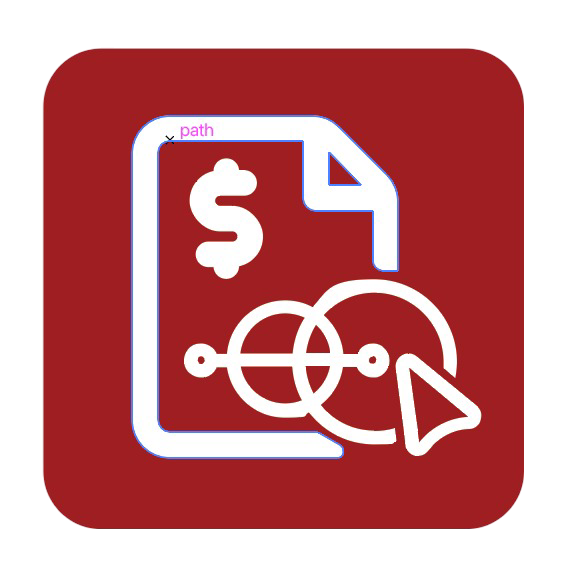Use Case: Financial Report Builder (FRB)
Let me show you a simple use case to help you better understand how the Financial Report Builder module works.
✨ Core Features Covered
- Node Based on Accounts
- Node Based on Custom Method
- Node Based on Formula
📘 Use Case Scenario
Imagine your client wants to remap the Profit and Loss Statement.
Here’s how you can build that using the FRB module:
1️⃣ Create a New Script Report
Start by creating a new Script Report named Mapped Profit and Loss Demo.
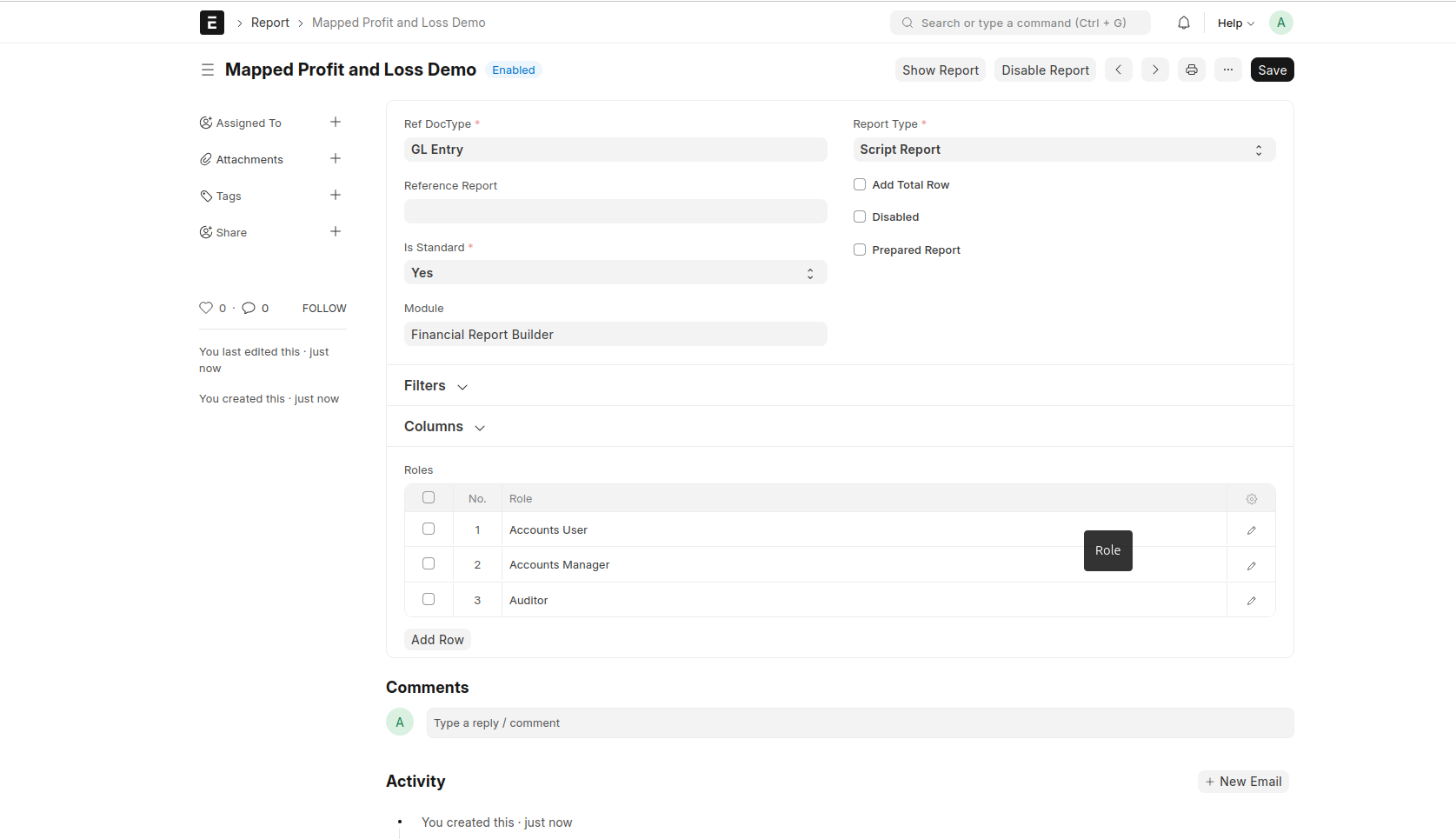
2️⃣ Create a Grouped Report Schema
Create a new Report Schema node with type = Grouped, and name it Mapped Profit and Loss Schema.
This node will serve as the parent to all the report's rows (child nodes).
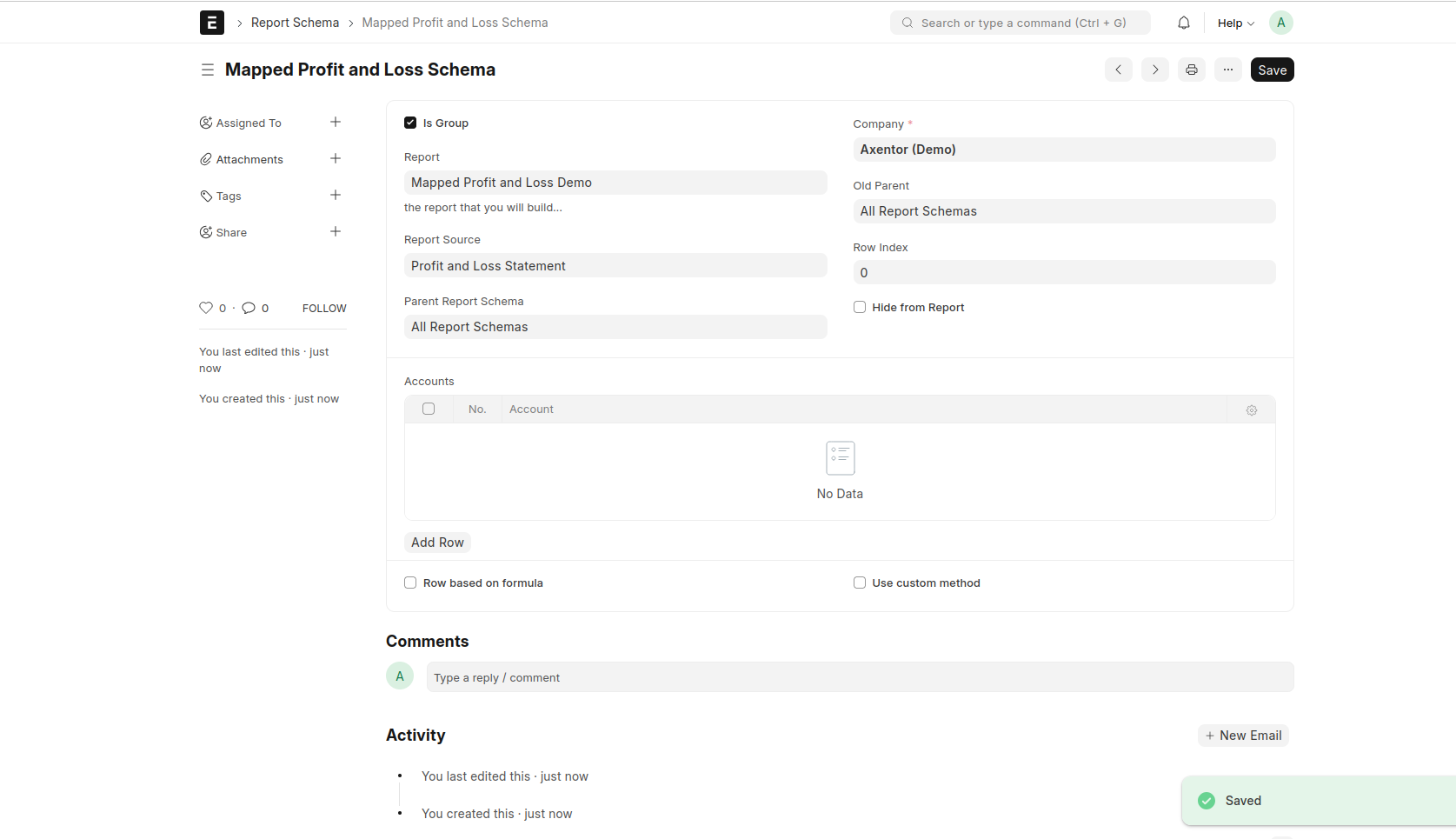
- A node is simply a row in the report.
3️⃣ Add a Node Based on Accounts
Suppose you want to show the Total Sales from the original Profit and Loss Statement.
- Add a new Report Schema under
Mapped Profit and Loss Schema - Set the Report Source to
Profit and Loss Statement - In the Accounts child table, choose the account(s) representing total sales
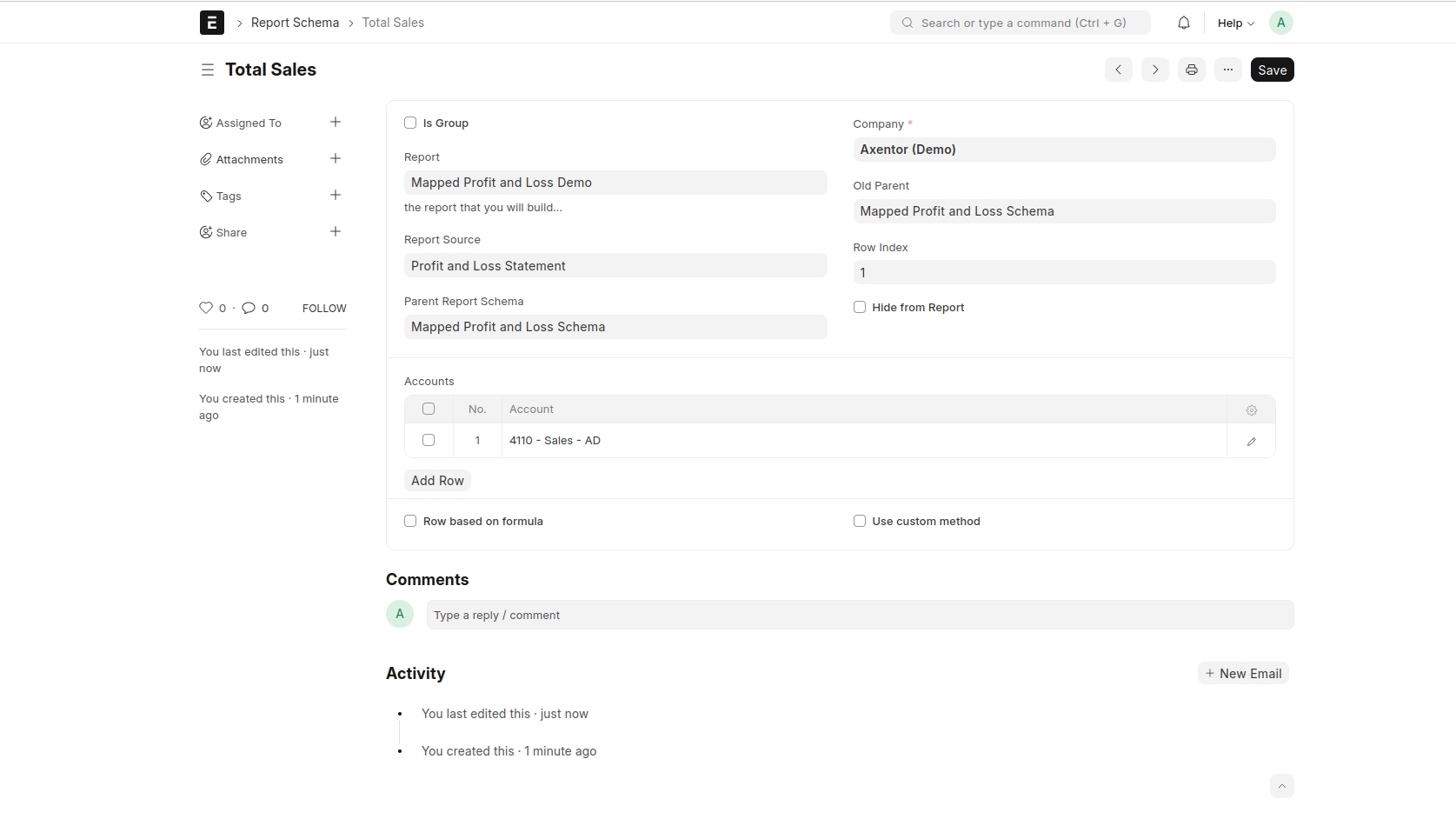
4️⃣ Add a Node Based on Custom Method
Now let’s say you want to show Total Taxes, but this value isn’t available in the standard P&L report — it’s calculated using custom logic.
Here’s how to do it:
- Add a new node
- Enable the checkbox Use Custom Method
- Enter the path to your backend method
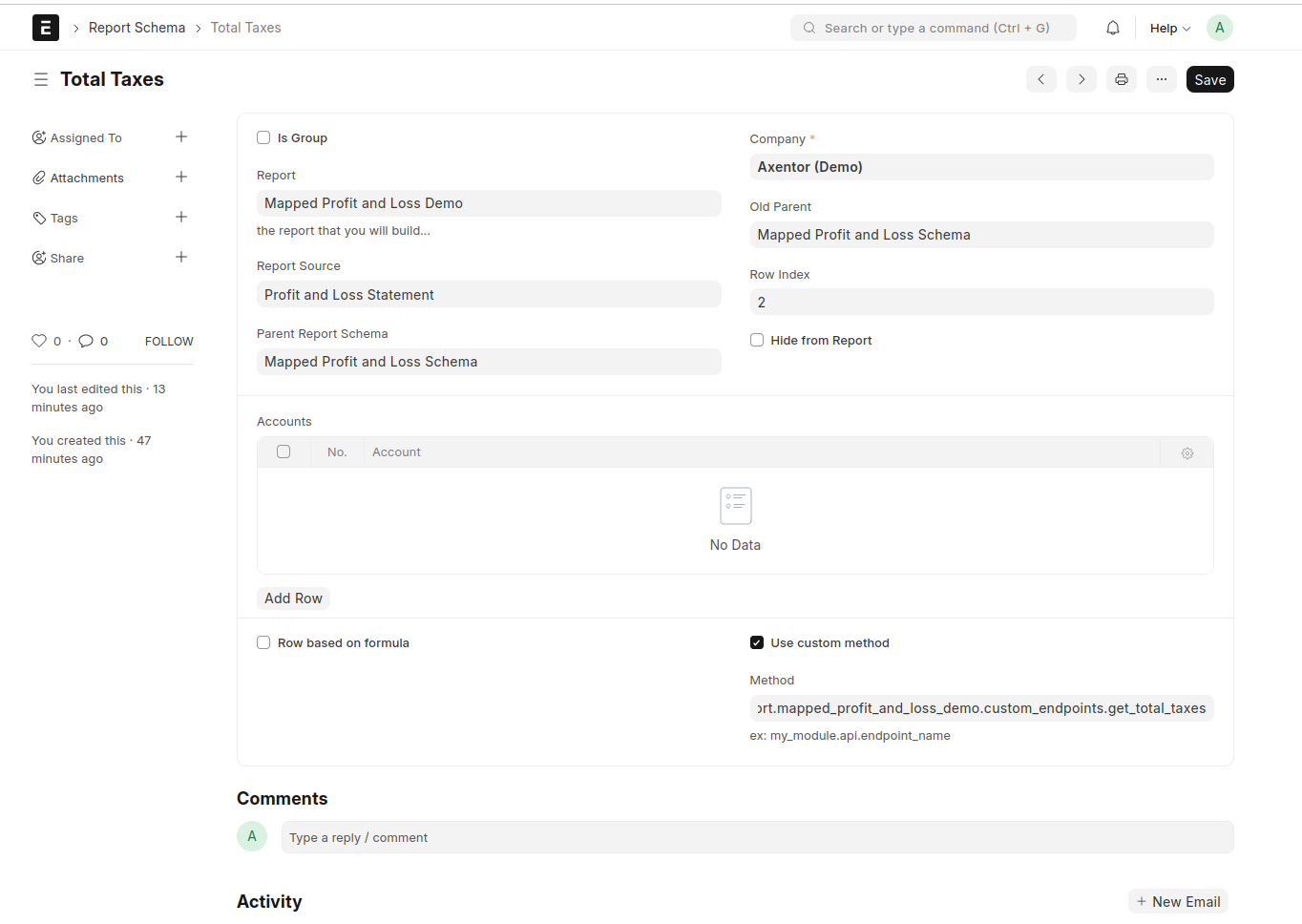
5️⃣ Add a Node Based on Formula
Next, let’s say you want to calculate something like:
TOTAL_SALES + TOTAL_TAXES
To do that:
- Enable the Row Based on Formula checkbox
- Enter your formula
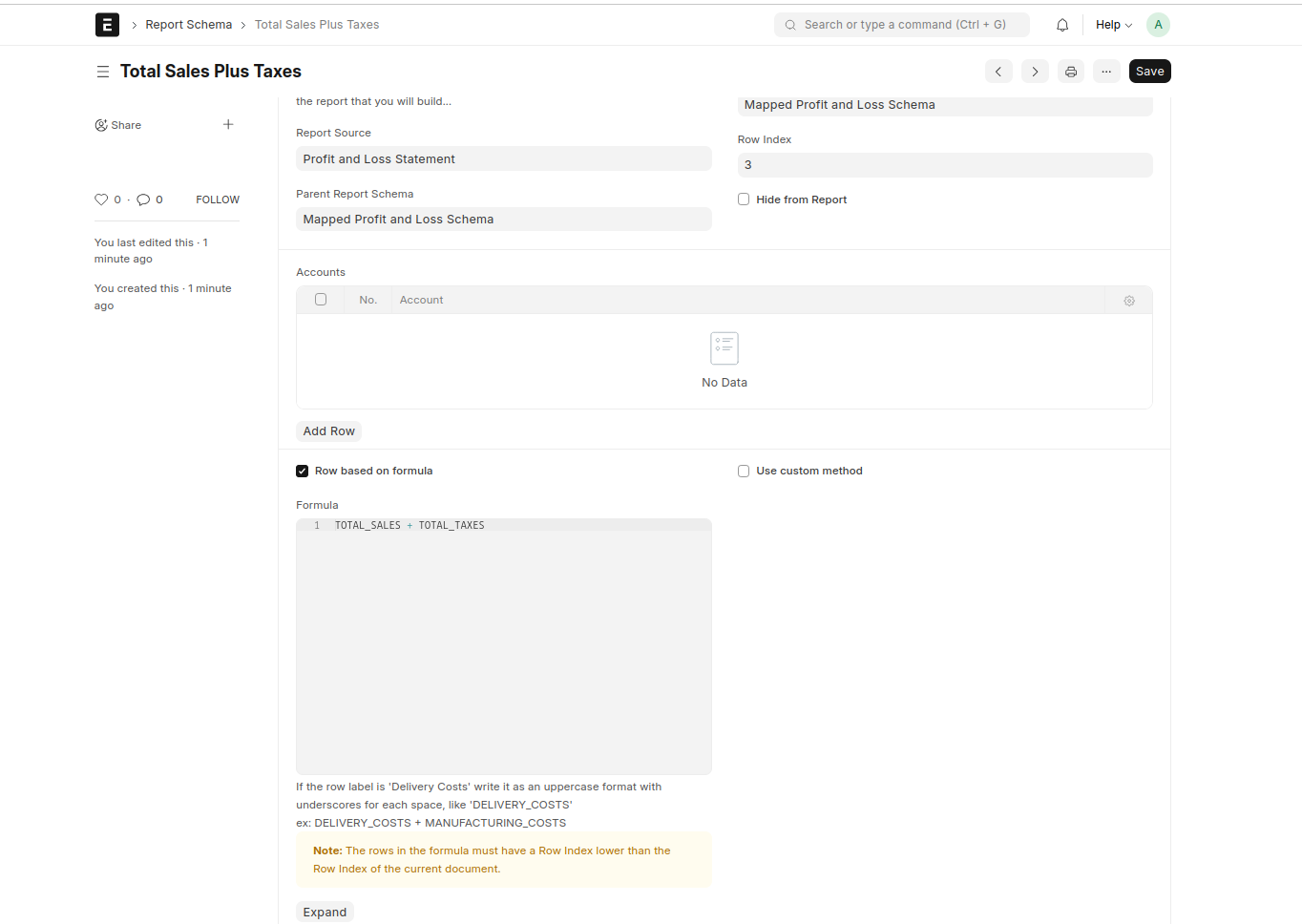
🎉 Final Result
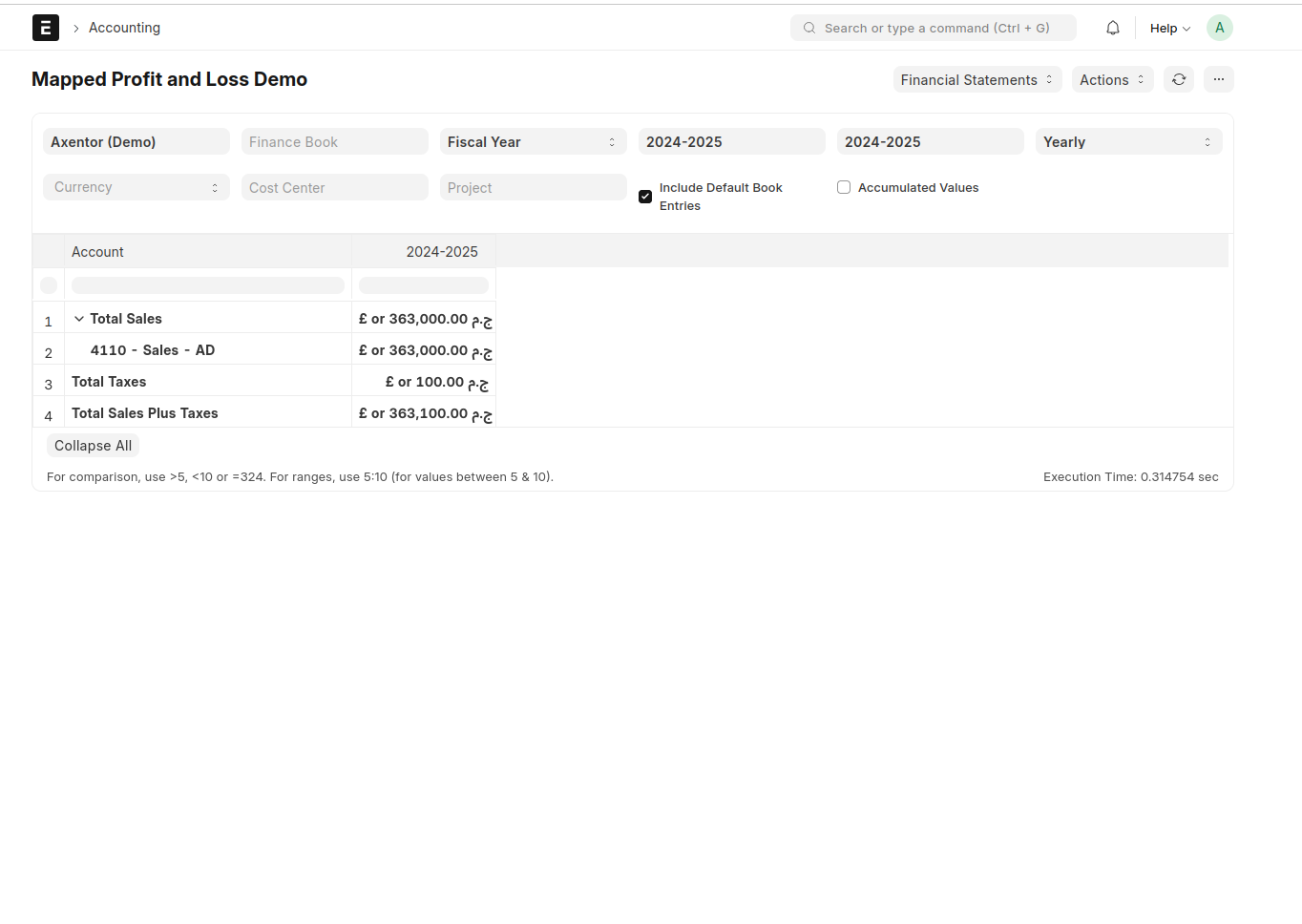
✅ Summary
With this setup, you’ve learned how to:
- Pull data from existing financial reports
- Inject custom business logic with backend methods
- Perform calculations directly inside the schema
The Financial Report Builder makes reporting flexible, powerful, and developer-friendly .
